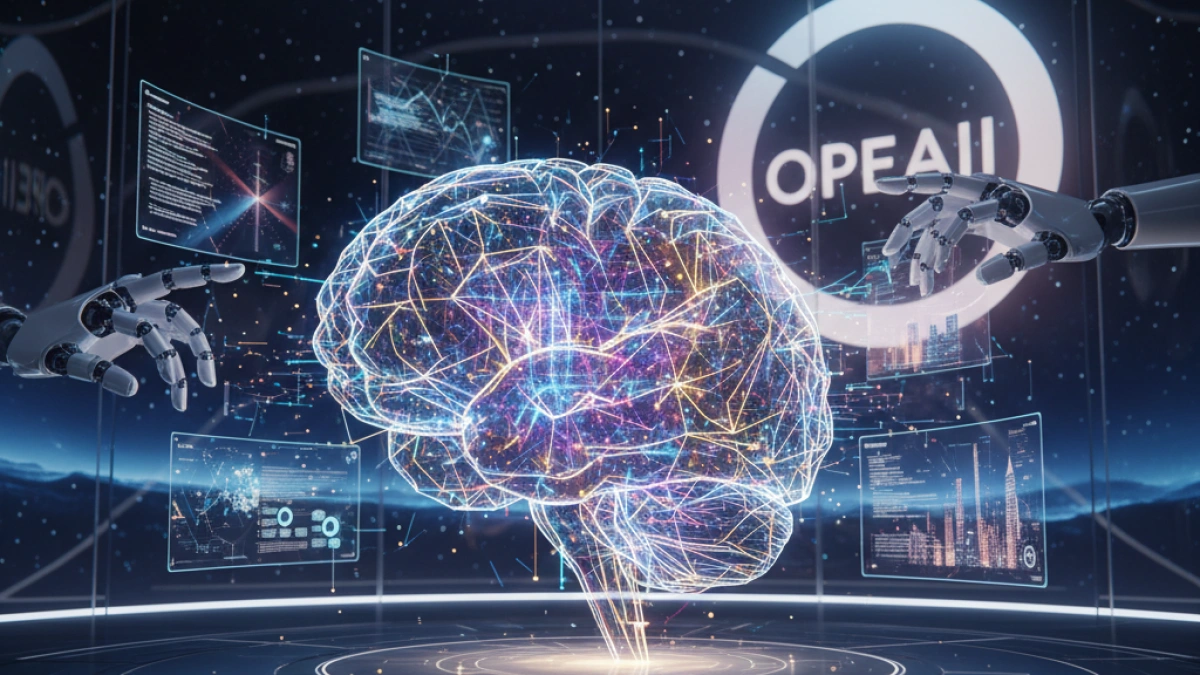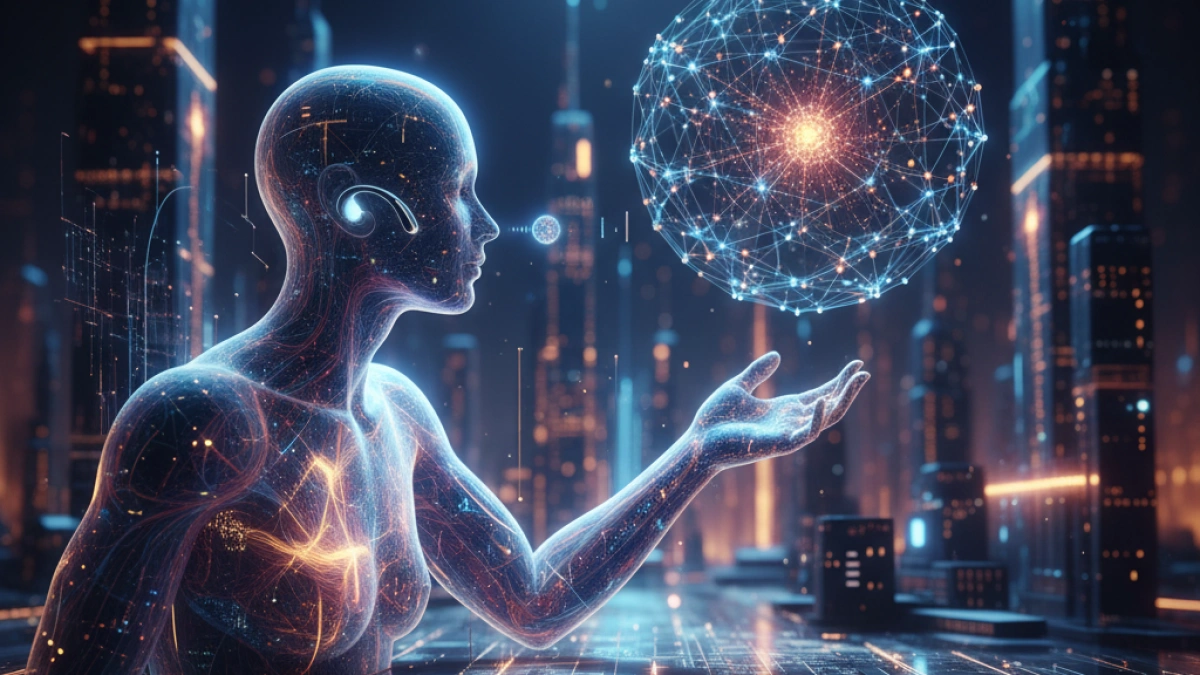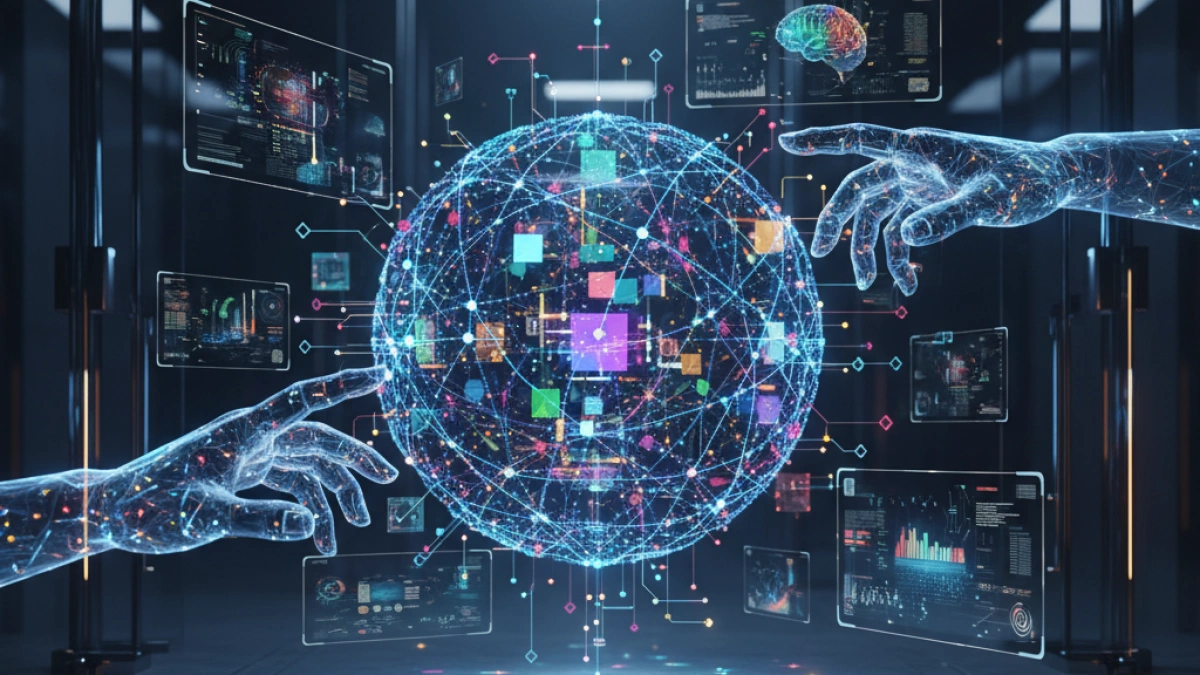Discover what OpenAI is and how it is transforming the future of artificial intelligence


Artificial intelligence (AI) has become one of the most innovative and promising technologies of the 21st century. At the heart of this technological revolution is OpenAI, an organization redefining the future of AI. In this article, we will explore what is and how OpenAI is influencing the evolution of artificial intelligence, its recent advances, and the impact these have on various sectors.
What is OpenAI?
OpenAI is an artificial intelligence research organization founded in 2015 by Elon Musk, Sam Altman, Greg Brockman, and other tech leaders. Its mission is to develop AI in a way that is safe and beneficial for all of humanity. OpenAI focuses on creating advanced AI technologies that can solve complex problems and improve quality of life on a global scale.
History and Evolution of OpenAI
Since its founding, OpenAI has achieved significant milestones in the field of artificial intelligence. In 2016, they launched the first AI system known as OpenAI Gym, which provides a testing environment for machine learning algorithms. Subsequently, in 2018, they introduced OpenAI Five, an AI system capable of playing Dota 2 at a competitive level against human players.
Recent Advances from OpenAI
OpenAI has continued to innovate with significant developments that have captured the attention of the tech community and beyond.
Read also
GPT-3 and GPT-4: Revolutionizing Natural Language Processing
One of OpenAI’s greatest achievements is the development of the GPT-3 and GPT-4 language models. These models, based on deep neural networks, have demonstrated an astonishing ability to understand and generate human-like text with coherence and context.
- GPT-3: Released in 2020, GPT-3 is a language model with 175 billion parameters, setting new standards in text generation. Its ability to perform tasks such as translation, code generation, and question answering has opened new possibilities in various fields.
- GPT-4: Introduced in 2023, GPT-4 has further improved in accuracy and comprehension. Its capability to handle complex texts and provide more contextualized responses has made it an invaluable tool for customer service, content creation, and more.
DALL·E and Image Generation
OpenAI has also ventured into the field of image generation with DALL·E, a model that can create images from textual descriptions. DALL·E has shown the ability to generate original and creative images that match the provided descriptions, opening new possibilities in graphic design, advertising, and entertainment.
Impact on Various Sectors
OpenAI’s influence on artificial intelligence extends beyond technology; its work has a profound impact on several sectors.
In the Business Sector
Businesses are adopting AI technologies developed by OpenAI to enhance operational efficiency and decision-making. Tools like GPT-3 and GPT-4 are being used to automate processes, generate content, and improve customer interactions. These applications allow businesses to offer more personalized and effective services.
In Education
In the educational sector, OpenAI is contributing to the creation of adaptive learning tools that can personalize the educational experience according to each student's needs. OpenAI's language models can provide detailed explanations and answer questions accurately, facilitating self-directed learning and educational support.
In Healthcare
OpenAI's artificial intelligence is also transforming the healthcare field. AI models can analyze large volumes of medical data to assist in diagnosing and treating diseases. Additionally, text generation and natural language understanding can enhance communication between healthcare professionals and patients, improving the interpretation of medical reports and treatment management.
Challenges and Ethical Considerations
Despite the impressive advancements, OpenAI also faces significant challenges related to ethics and AI safety. The organization is committed to the responsible development of technology and works to address issues such as bias in AI models, data privacy, and misuse of technology.
Mitigating Bias in AI
OpenAI is implementing strategies to mitigate bias in its AI models, ensuring that developed technologies do not perpetuate inequalities or discrimination. The organization conducts ongoing research and adjustments to ensure that its systems are fair and equitable.
Data Security and Privacy
Data security and privacy are priorities for OpenAI. The organization adopts stringent measures to protect information and ensure that AI models do not compromise personal data confidentiality. Additionally, OpenAI collaborates with ethics and security experts to address potential risks associated with the use of its technologies.
Conclusion
OpenAI is playing a crucial role in shaping the future of artificial intelligence. Through technological advancements such as GPT-3, GPT-4, and DALL·E, OpenAI is redefining what is possible with AI and offering innovative solutions across various sectors. While there are ethical and security challenges to address, OpenAI’s commitment to responsible technology development promises a future where artificial intelligence can benefit all of humanity.
If you are interested in the impact of AI and how it is shaping our future, OpenAI is a key organization to follow. Its innovations continue to push the boundaries of technology and offer new opportunities for progress and improvement in all aspects of our lives.

















